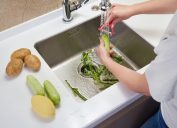4 Easy Ways to Unclog Your Sink—And 4 Ways You're Making It Worse
We talked to plumbers and other experts to get advice on what to do and not to do.
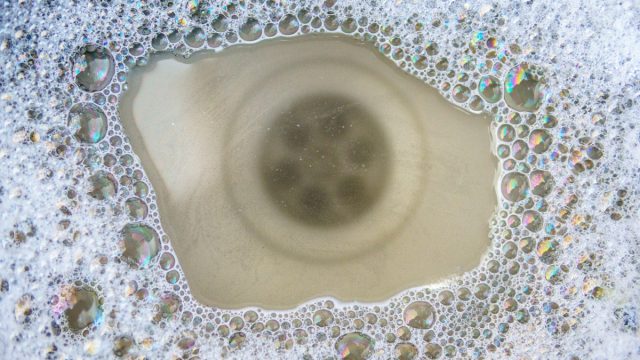
There's no feeling quite as frustrating as seeing that the water has backed up in your sink. Unfortunately, it's a problem all of us encounter at one point or another—and sometimes it feels easier to handle yourself than to call a plumber. A clogged sink is a home repair that can be done without the help of professionals, but that doesn't mean you should try just any of the countless drain-clearing hacks available online. It's important to take your advice from those who know what they're doing, so we talked to plumbers and other experts to get the best guidance. Read on to discover four easy ways to unclog your sink, and four ways you could be making the problem worse.
READ THIS NEXT: 5 Things You Should Never Put Down Your Garbage Disposal.
1
Use a plunger.
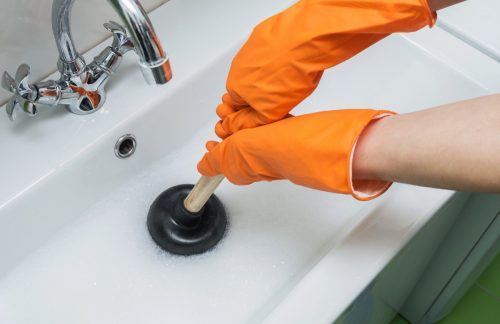
When your sink isn't draining, don't dismiss the power of your average plunger.
"This tool can be very effective in dislodging clogs physically," Moe Soloff, a kitchen specialist at Fabuwood Cabinets, tells Best Life.
As Quintin Mangano, a plumbing expert working with Coastal Home Services, further explains, using a plunger helps to create strong suction over the drain.
"The suction and pressure can dislodge the clog and allow water to flow freely," he notes.
2
But don't overuse it.
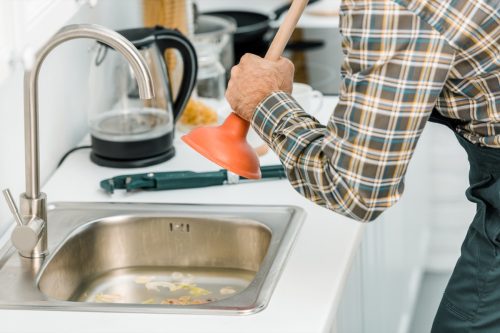
This easy tool can also cause some damage depending on how you use it, however. You should avoid overusing a plunger when you're trying to unclog your sink, according to Soloff.
"When used with too much force, it can stress pipes and potentially cause a burst," he explains.
Daniel Johnson, a master plumber and the general manager at Dial One Johnson Plumbing, Cooling, & Heating, also stresses the importance of plunging your drain gently if this is the method you choose.
"The gentle percussion of the plunging action can create movement in a clog that sometimes allows the force of the water to move it down the line," Johnson says. "Be gentle! Aggressive plumbing can cause leaks."
3
Create a vinegar and baking soda mix.
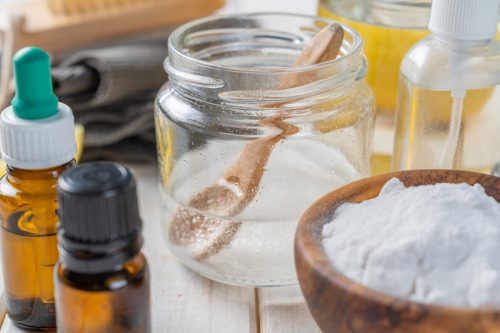
You may already have all the ingredients you need to get your sink back up and running. According to Soloff, you can combine vinegar and baking soda together to pour down a clogged drain.
"This mix capitalizes on chemical reactions to dissolve certain clogs," he says.
Mangano recommends mixing equal parts of baking soda and vinegar together for this method.
"After you pour it down the drain, let it sit for a while and then flush it with hot water," he adds.
READ THIS NEXT: 5 Items You Should Never Store in Your Pantry, According to Experts.
4
But don't rely on chemical drain cleaners.
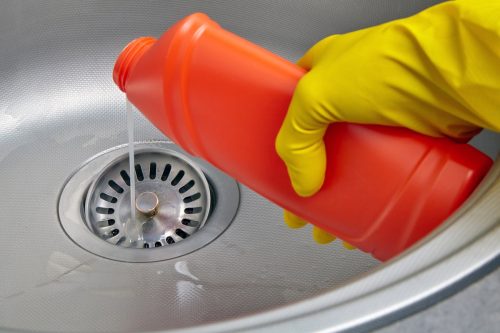
You might assume that just buying a chemical drain cleaner from the store will be easier and more effective than creating your own homemade concoction. But this is a major misconception, according to Soloff.
"Chemical drain cleaners can be a tempting quick fix, but they often damage pipes over time," he warns.
Soloff says mistakes like this can turn into expensive repairs for homeowners over time—something he's witnessed first-hand.
"For instance, one client repeatedly used a chemical drain cleaner to clear minor clogs, unaware of the progressive damage being done to their pipes," he recalls. "It eventually led to a costly pipe replacement."
5
Use a plumbing snake.
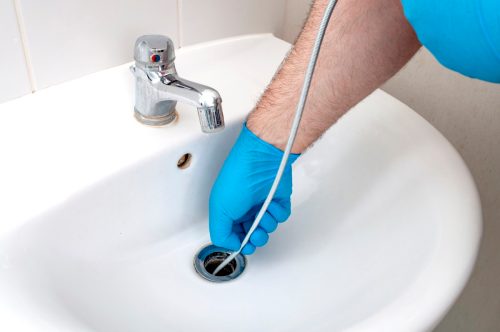
If you are looking for sink solutions at the store, opt for a plumbing snake instead, Mangano advises. A quick Google search indicates that you can easily find one for less than $15 at nationwide stores like Walmart, Home Depot, Lowe's, and Ace Hardware.
"A plumbing snake or drain auger is a flexible tool that can be inserted into the drain to physically break up or retrieve the clog," Mangano shares.
6
But don't try to use a wire hanger instead.
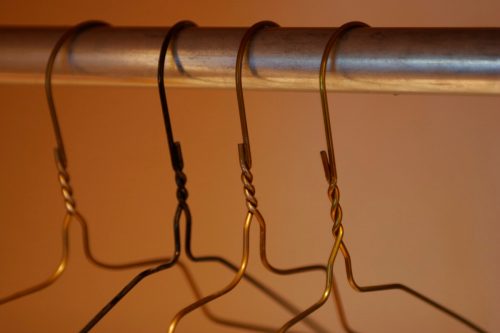
Unlike the drain cleaner solution, you shouldn't try to make your own homemade version of a plumbing snake—especially if you're thinking about using wire hangers. This common error can cause even more problems for your sink, according to Mangano.
"Trying to unclog a drain with a wire hanger can scratch or damage the inside of the pipes," he warns.
For more home advice delivered straight to your inbox, sign up for our daily newsletter.
7
Pour hot water down the drain.
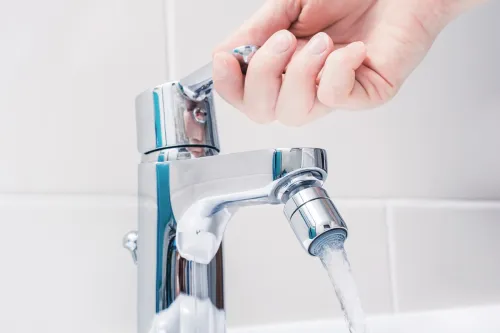
One of the easiest methods you can try to use to unclog your sink won't cost you a thing. In fact, all you need is the water from your own sink, according to Dave Bringer, an appliance repair expert and owner of Bringer Appliance Repair. He recommends pouring a "good quantity" of hot water down the drain—likely about half a gallon's worth.
"What this does is dissolve oil, soap, hair and debris build-up in your pipes and free it up almost instantly," Bringer explains.
8
But don't just leave the water running.
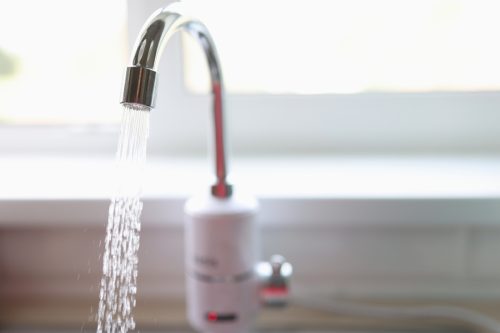
On the other hand, don't try dumping more than a half-gallon in by just leaving the water on, and expect to still see good results.
"You probably assume that filling it up with water will force whatever is blocking your sink out—unfortunately, it wouldn't," Bringer says. "That will just result in a bigger mess and an increase in your water bill."
Jay Sanders, an expert contractor and owner of the home remodeling company Castle Dream Basement Waterproofing, also warns that while hot water can be useful, boiling water may not be the right choice.
"This is a method that many people use, but it's not one that I always recommend," he says. "Boiling water can increase the chances of damage to your pipes and can cause serious burns if it isn't used properly."

